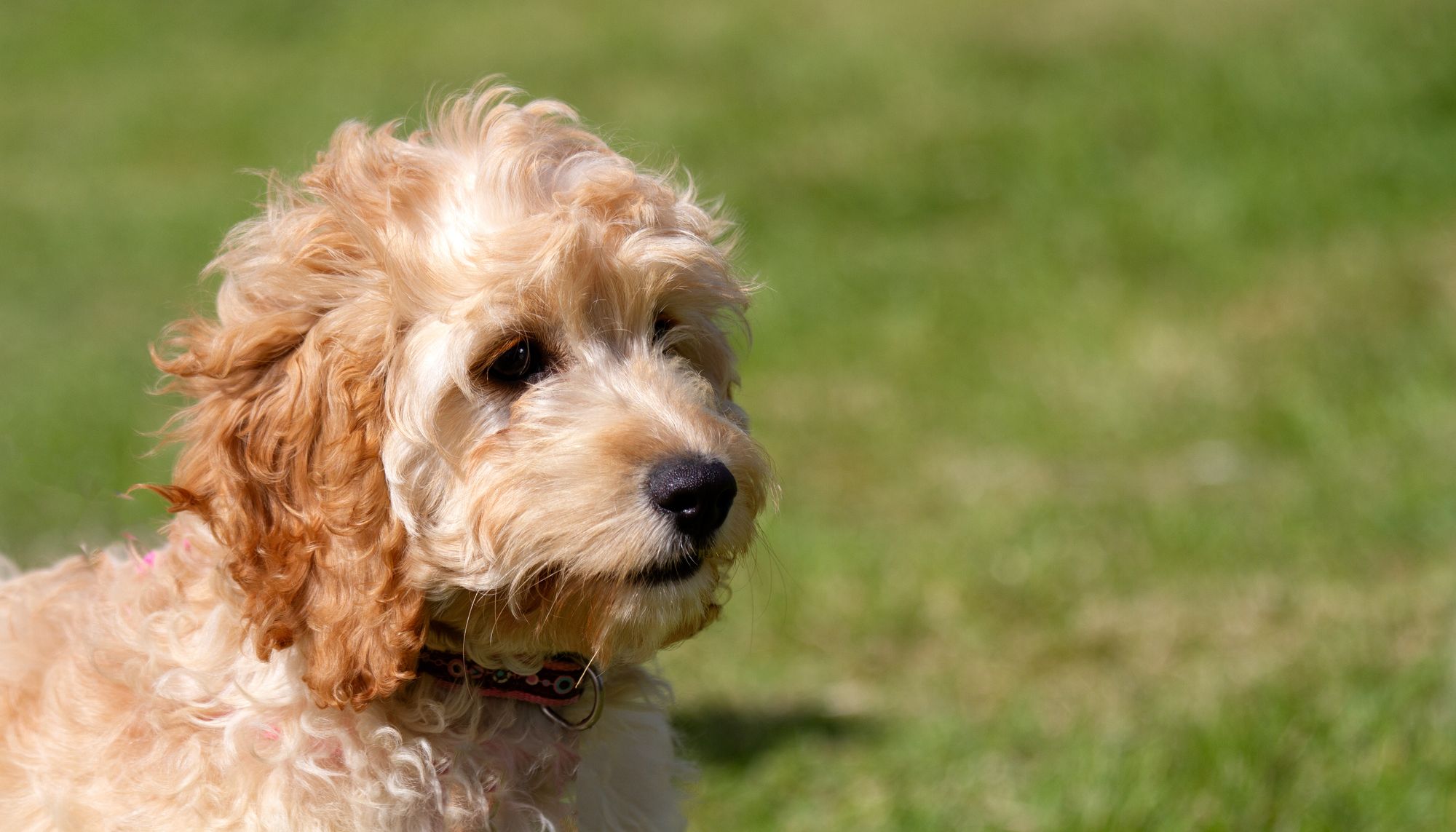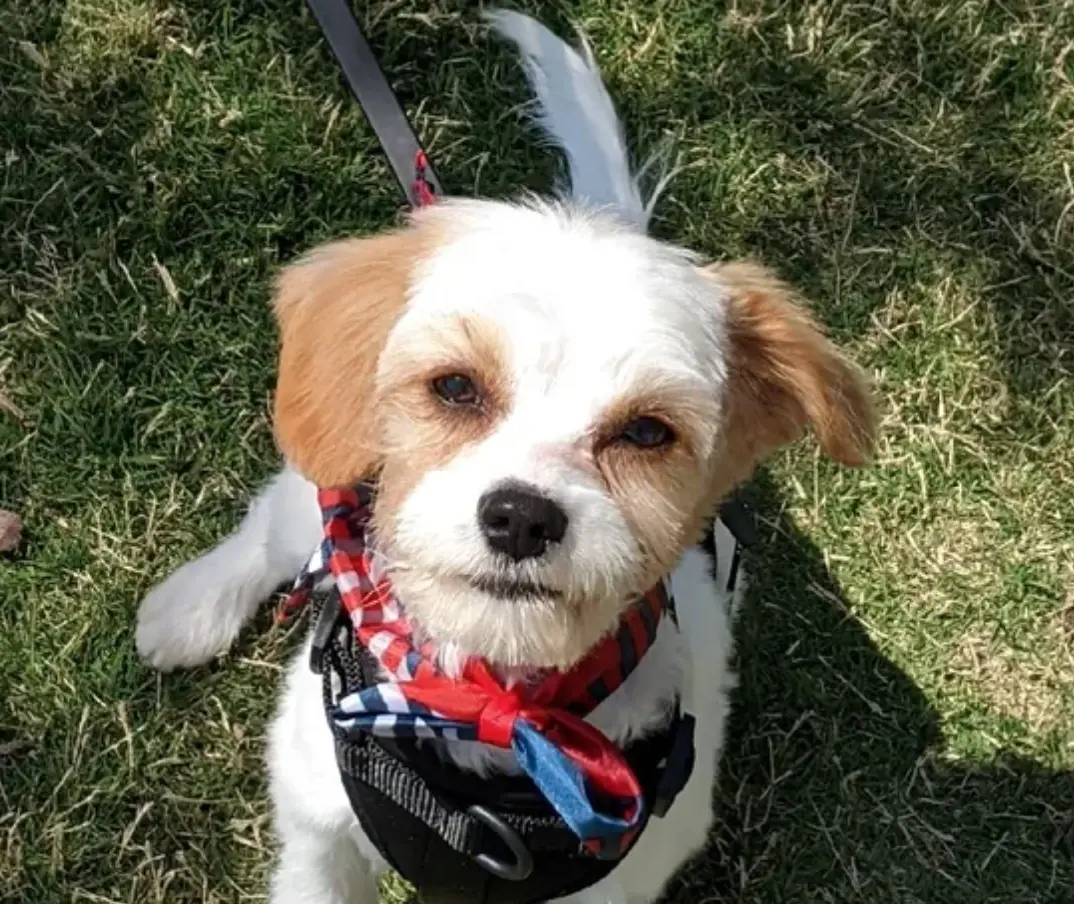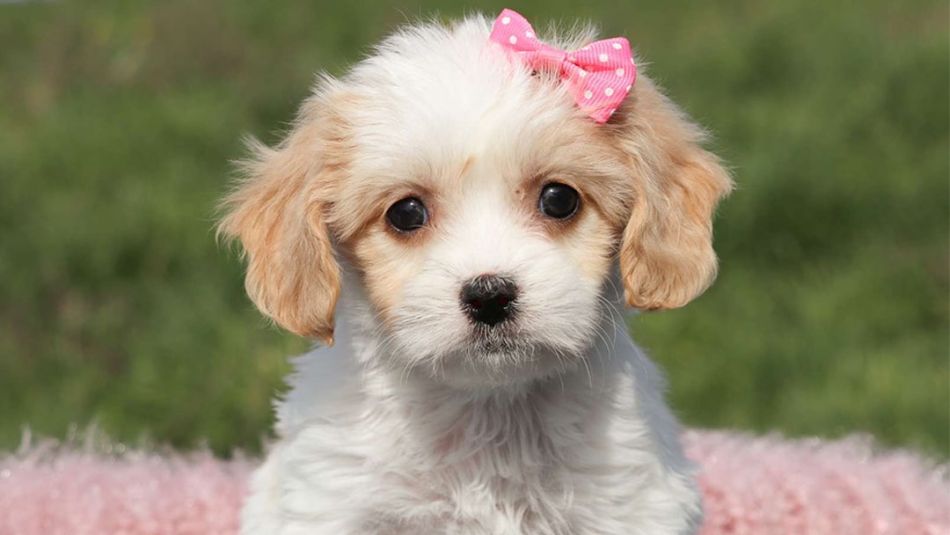The Cavachon is an adorable and affectionate small dog breed that has gained popularity in recent years. It is a crossbreed between a Cavalier King Charles Spaniel and a Bichon Frise. This hybrid breed inherits the best traits from both parent breeds, resulting in a loving and sociable companion.
Understanding the origins of the Cavachon breed is important to appreciate its unique qualities. The breed originated in the United States and has gained popularity for its friendly and gentle nature.

When it comes to physical characteristics, Cavachons are known for their soft, wavy or curly coat that comes in various colors such as white, apricot, and black. They have expressive eyes, a friendly face, and a compact yet sturdy build.
In terms of temperament and personality traits, Cavachons excel as companion dogs. They are known for their sociability and love being around their human families. They are great with children and get along well with other pets, making them ideal as family pets.
Caring for a Cavachon includes some specific needs. They have a low-shedding coat that requires regular grooming to prevent matting. Being a small breed, they have moderate exercise requirements and enjoy daily walks and playtime. Training and socialization are also essential for a well-rounded Cavachon. Like all breeds, they can be prone to certain health issues that potential owners should be aware of.
Before deciding if a Cavachon is the right dog for you, it's important to consider their suitability for different lifestyles. They are adaptable and can thrive in various environments, but they do require human companionship and should not be left alone for long periods. The ideal home for a Cavachon is one where they will receive love, attention, and plenty of social interaction.
By understanding the characteristics, needs, and suitability of Cavachons, potential owners can make an informed decision about whether this lovable breed is the right fit for them.
Key takeaways:
- Cavachons are a mixed breed: Cavachons are a cross between a Cavalier King Charles Spaniel and a Bichon Frise. They have origins in the United States and have gained popularity as companion dogs due to their adorable appearance and friendly nature.
- Cavachons are great family pets: Cavachons are known for their affectionate and gentle temperament, making them excellent family pets. They get along well with children and other animals, and their small size makes them suitable for various lifestyles and living situations.
- Caring for a Cavachon requires attention: Cavachons have grooming needs, including regular brushing and occasional professional grooming. They also need daily exercise to keep them healthy and mentally stimulated. Proper training and socialization are important to ensure they grow into well-behaved and happy dogs.

What is a Cavachon?
Curious to learn about the adorable Cavachon breed? Let's dive straight into uncovering what makes a Cavachon so special! From exploring their fascinating breed origins to discovering their unique physical characteristics, we'll embark on an exciting journey to gain a comprehensive understanding of this lovable canine. So, fasten your seatbelts and get ready to unravel the captivating world of the Cavachon breed!
Cavachon Breed Origins
The Cavachon breed, also known as Cavachon Breed Origins, originated from the intentional crossbreeding of Cavalier King Charles Spaniels and Bichon Frises. This hybrid breed was developed to create a dog that has the appealing traits of both parent breeds, such as the friendly and sociable nature of the Cavalier King Charles Spaniel and the hypoallergenic coat of the Bichon Frise.
The Cavachon breed combines the best characteristics from both breeds, resulting in a small, affectionate, and playful happy dog that is well-suited for families and individuals looking for a companion pet. The breed's origins can be traced back to the late 1990s when breeders started intentionally producing Cavachons for their desirable traits.
Physical Characteristics of Cavachons
Cavachons are small, adorable dogs known for their unique physical characteristics. Here are some key features to consider when looking at Cavachons:
- Size: Cavachons are typically small in size, weighing between 10 to 20 pounds.
- Coat: They have a soft and fluffy coat that can be curly or wavy, resembling their Bichon Frise ancestors.
- Colors: Cavachons can come in a variety of colors, including white, apricot, black, and tan.
- Facial features: They have expressive eyes, a rounded head, and a cute button nose.
- Build: Cavachons have a sturdy build with a compact body, short legs, and a wagging tail.
Considering these physical characteristics, Cavachons are an excellent choice for anyone looking for an adorable, small-sized companion dog. Their soft coats and expressive faces make them irresistible pets for individuals and families alike. If you're searching for a dog with a charming appearance and a friendly nature, a Cavachon might be the perfect fit.
Temperament and Personality Traits
Uncover the beautiful temperament and personality traits of these adorable canines. From their remarkable ability to provide companionship to their heartwarming presence as family pets, Cavachons are a true delight. Discover how their loving nature makes them exceptional companions and the delightful ways they bring joy and happiness as cherished members of the family.

Cavachon as Companion Dogs
The Cavachon breed is known for being excellent companion dogs, thanks to their friendly and affectionate nature. Cavachons as companion dogs are loving and affectionate. They have a strong desire to please their owners and thrive on human companionship. They are known to be loving, loyal, and devoted, making them excellent companions.
Cavachons as companion dogs are gentle and patient. They are known for their gentle and patient nature, which makes them great companions for people of all ages. They are often good with children and get along well with other pets.
Cavachons as companion dogs are playful and energetic. Despite their small size, Cavachons have good energy levels and love to play. They enjoy interactive games and regular exercise, making them fun companions for active individuals or families.
Cavachons as companion dogs are easy to train. They are intelligent dogs and are generally easy to train. They respond well to positive reinforcement techniques and are eager to please, making them a joy to train and live with.
Cavachons as companion dogs are adaptable. They are known for their adaptability and can thrive in various living situations, whether it's a small apartment or a large family home. They can adjust well to different lifestyles and are versatile companions.
Whether you're looking for a cuddly lap dog or an energetic playmate, Cavachons excel at being loving and loyal companions for their owners.
Cavachon as Family Pets
Cavachons are known for their friendly and sociable nature, which makes them excellent family pets. They have the adaptability to thrive in different living environments, such as a house with a yard or an apartment. Their compatibility with children and other pets also makes them great additions to any family. With their playful and energetic nature, Cavachons bring lots of fun and joy to the household. Moreover, their loyalty and eagerness to please their owners make them truly devoted family pets. Despite being small to medium-sized dogs, Cavachons are suitable for families of all sizes. Overall, Cavachons are perfect as family pets.
Caring for a Cavachon
As you embrace the joy of having a Cavachon, it's essential to learn how to care for this delightful breed. From grooming needs to exercise requirements, training, socialization, and health considerations, we'll dive into every aspect of Cavachon care. Get ready to discover the tips and strategies that will help you provide a loving and nurturing environment for your furry companion. So, let's embark on this journey of exceptional care for your Cavachon!

Grooming Needs
Proper grooming is essential for meeting the grooming needs of your Cavachon. It will help keep them looking and feeling their best. Here are some tips to consider:
- Regular brushing: Make sure to brush your Cavachon's coat at least once a week. This will prevent matting and tangles.
- Bathing: Giving your Cavachon a bath every 4-6 weeks using a gentle dog shampoo is important.
- Ear cleaning: To prevent infections, clean your Cavachon's ears on a regular basis.
- Nail trimming: Keep your Cavachon's nails at a comfortable length by trimming them regularly.
- Eye care: It is essential to check your Cavachon's eyes for any signs of redness, discharge, or irritation. Clean them as needed.
Fun Fact: Cavachons are known for their hypoallergenic coat, making them an ideal choice for individuals with allergies.
Exercise Requirements
- Ensure that your Cavachon's exercise requirements are met by incorporating regular walks, playtime, and mental stimulation in their routine.
- To help them burn off energy, make it a point to take your Cavachon for a daily walk.
- Keep your Cavachon physically active by engaging in play sessions with interactive dog toys.
- Keep their minds sharp by providing mental stimulation through puzzle toys or training exercises.
- For additional physical and mental exercise, consider activities like agility training or obedience classes.
Remember that every Cavachon is unique, so it is important to adjust their exercise routine based on their age, health, and individual preferences. Consulting with a veterinarian can provide specific guidance on exercise needs for your Cavachon.
Training and Socialization
Training and socialization are crucial aspects of raising a well-behaved and balanced Cavachon. It is important to start training early by beginning training sessions as soon as you bring your Cavachon puppy home. Use positive reinforcement techniques such as rewarding your Cavachon with treats, praise, and playtime for good behavior.
Additionally, make sure to socialize your Cavachon extensively by exposing them to a variety of people, animals, and environments. This will ensure that they are comfortable and well-behaved in different situations.
Teaching basic commands like sit, stay, come, and walking on a leash should be a focus during the training process. It is also important to continue training throughout your Cavachon's life to maintain good behavior. Ongoing training and refreshers are necessary for long-term success.
Fact: Cavachons are known for their friendly and sociable nature, which makes them excellent therapy and emotional support dogs.
Health Considerations
When it comes to the health of a Cavachon, there are certain important health considerations that should be kept in mind. These adorable hybrid dogs may have certain genetic health issues inherited from their parent breeds, the Cavalier King Charles Spaniel and the Bichon Frise. Some health concerns to be aware of include heart problems, eye conditions, and joint issues such as hip dysplasia.
Regular veterinary check-ups, a well-balanced diet, and proper exercise can all contribute to maintaining the overall health of your Cavachon. If you are thinking about getting a Cavachon, it is wise to inquire about the health history of the parents in order to gain insight into potential health risks.

Is a Cavachon the Right Dog for You?
Considering a new furry companion? Discover if a Cavachon is the perfect match for you! Explore this section to uncover the suitability of Cavachons for different lifestyles, as well as what constitutes the ideal home for these delightful dogs. From active individuals to cozy homebodies, we'll explore how Cavachons can fit seamlessly into your lifestyle. Get ready to dive into the world of Cavachons and find your perfect four-legged friend!
Cavachon Suitability for Different Lifestyles
The Cavachon breed is versatile and can adapt to different lifestyles. Consider the following factors when determining if a Cavachon is suitable for your lifestyle:
- Activity level: Cavachons are energetic and require regular exercise. They enjoy playtime and walks, making them a good fit for active individuals or families.
- Living arrangements: Cavachons are adaptable to various living situations, whether in a house with a yard or an apartment. They thrive best in homes with ample space for them to move around.
- Time and attention: Cavachons crave human companionship and can get anxious when left alone for long periods. They are ideal for individuals who can dedicate time to socializing, training, and providing attention.
- Family dynamics: Cavachons are affectionate and great with children, making them suitable for families with kids. Their gentle nature also makes them a good fit for senior citizens or individuals seeking companionship.
The Ideal Home for a Cavachon
When it comes to providing the ideal home for a Cavachon, there are a few factors to consider. First and foremost, it should be a loving and comfortable environment for this small and affectionate breed. Let's take a look at some key aspects:
- Space: The good news is that Cavachons are adaptable and can thrive in various living situations. Whether you have an apartment or a house with a small yard, they can make themselves at home.
- Activity: Cavachons are quite active and enjoy daily walks and playtime. Therefore, having access to parks or outdoor spaces nearby would be highly beneficial for them.
- Company: As social animals, Cavachons thrive on human companionship. They are well-suited for families or individuals who can devote quality time to them.
- Training: Consistent training and socialization are essential for a well-behaved Cavachon. So, a home committed to providing these aspects is crucial.
- Low Noise Levels: Cavachons can be sensitive to loud noises, so a calm and peaceful home environment is preferred. This will help them feel secure and content.
By incorporating these considerations into the ideal home for a Cavachon, you can expect to have a loving and loyal companion who will bring immeasurable joy into your life.

Frequently Asked Questions
- What is the official name of the Cavachon breed?
- The Cavachon is the official name of the breed.
- When and where did the Cavachon originate?
- The Cavachon originated in North America in the 1990s.
- What are the coat types of Cavachons?
- Cavachons can have a solid or parti-colored coat, often with a dominant white color.
- What are the barking habits of Cavachons?
- Cavachons tend to bark at strangers but are friendly and quick to make new friends.
- Are Cavachons good with other animals?
- Yes, Cavachons are known to be good with other dogs and cats.
- Are Cavachons suitable for first-time owners?
Yes, Cavachons are adaptable and make great pets for first-time owners.






